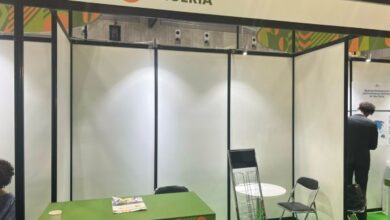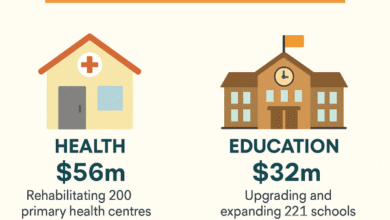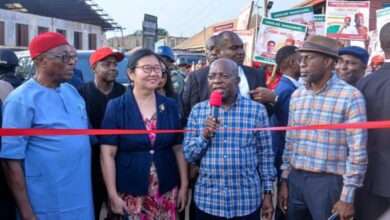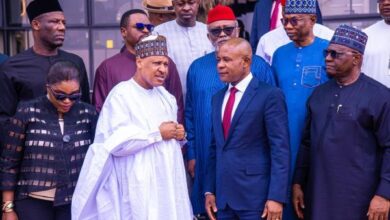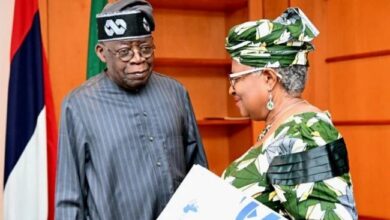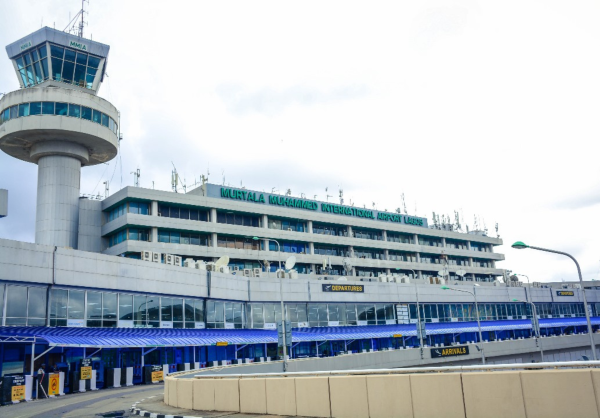
The African Democratic Congress (ADC) has condemned the Federal Government’s proposed ₦712 billion renovation of the Murtala Muhammed International Airport in Lagos, calling it a misguided economic decision at a time when millions of Nigerians are grappling with rising inflation, insecurity, and decaying social infrastructure.
In a statement issued in Abuja by its National Publicity Secretary, Bolaji Abdullahi, the party described the expenditure—equivalent to over $500 million USD—as outrageous, opaque, and poorly prioritized, especially when compared to Nigeria’s pressing needs in education, healthcare, and infrastructure.
A Case of Excessive Spending Amid Economic Fragility
Abdullahi questioned the justification for committing ₦712 billion to the renovation of an airport that, by all public accounts, was already upgraded and fully functional. He recalled that the same Lagos airport terminal had been commissioned in March 2022 under the Buhari administration, boasting:
- A 56,000 sqm floor space
- 66 check-in counters
- Capacity to process 14 million passengers annually
- Jet bridges, climate control systems, and even an on-site 22-room hotel
Yet, despite its advanced features, the terminal reportedly processed only 6.5 million passengers in 2024, raising concerns about utilization inefficiency rather than infrastructural decay.
“We are asking whether this is the same airport being targeted for renovation, or a different one altogether,” Abdullahi remarked.
Transparency and Legal Oversight in Question
Beyond the cost, the ADC is also raising critical questions about the transparency and legality of the spending plan:
- Was the ₦712 billion project approved by the National Assembly?
- Is it captured in the 2025 national budget or supplementary appropriation?
- Under what constitutional provisions is such a colossal sum being deployed?
The party is demanding an immediate suspension of the renovation project, coupled with a full independent audit of the proposed budget.
“Nigerians deserve to know the basis and breakdown of this spending. Public finance must serve public interest—not political optics or elite convenience,” Abdullahi said.
What ₦712 Billion Could Buy: Opportunity Cost Ignored
The ADC also offered a sobering reminder of what the same ₦712 billion could deliver:
- Establishment of seven world-class teaching hospitals
- Funding free basic education in three geo-political zones
- Rural electrification projects across underserved communities
- Road infrastructure upgrades in key agricultural corridors
This stark contrast brings to fore a familiar pattern in Nigeria’s fiscal governance: headline mega-projects with questionable necessity taking precedence over grassroots-impacting interventions.
BRANDECONOMY ANALYSIS: Fiscal Prudence vs. Elite Infrastructure
The controversy surrounding the Lagos airport renovation underscores a deeper structural issue in Nigeria’s public finance: the persistent disconnect between elite-driven capital projects and mass economic empowerment.
While modern aviation infrastructure is important for global competitiveness and tourism, the scale of investment in a single facility—particularly one already upgraded—raises questions about prioritization, fiscal discipline, and value-for-money audits.
Moreover, Nigeria is still servicing loans taken for airport development just a decade ago. Abdullahi noted that $500 million—the equivalent of the new renovation budget—was used to build four new terminals in Abuja, Lagos, Port Harcourt, and Kano in 2014 via a Chinese loan that remains unpaid.
The Bigger Picture: Redefining Capital Expenditure Priorities
As economic hardship deepens for millions of Nigerians, political and economic stakeholders are increasingly calling for a recalibration of capital expenditure priorities. ADC’s challenge may ignite broader debates on:
- Decentralizing airport infrastructure to support regional economies
- Investing in aviation maintenance hubs rather than continuous terminal rebuilds
- Shifting focus to feeder airports that can decongest Lagos and stimulate rural economies
Until these questions are answered and addressed with transparency, the ₦712 billion Lagos airport renovation risks becoming a lightning rod for public distrust and fiscal skepticism.






